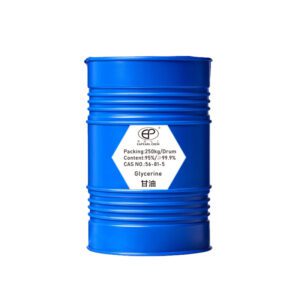Introduction:
Batteries have become integral to our daily lives, powering various devices, from smartphones to electric vehicles. Behind the scenes, the role of the battery electrolyte solvent is pivotal, acting as a conductive medium that facilitates the flow of electrons and ions. Diethyl carbonate is a solvent that plays a significant role in battery electrolytes. This comprehensive article will delve into the inner workings of diethyl carbonate as a solvent, exploring its properties, applications, challenges, and safety precautions.
Table of Contents:
| Sr | Headings |
| — | ——– |
| 1. | Understanding Diethyl Carbonate |
| 2. | Properties that Enable Diethyl Carbonate as a Solvent |
| 3. | Diethyl Carbonate in Lithium-Ion Batteries |
| 4. | Role of Diethyl Carbonate in Lithium-Ion Batteries |
| 5. | Challenges and Considerations |
| 6. | Safety Precautions |
| 7. | The Versatility of Diethyl Carbonate |
| 8. | Conclusion |
| 9. | FAQs |
1. Understanding Diethyl Carbonate
Diethyl carbonate is an organic compound with the chemical formula C5H10O3. This colorless and transparent liquid possesses a slightly irritating odor. While it may be insoluble in water, diethyl carbonate exhibits solubility in alcohol, ketones, esters, aromatics, and other organic solvents. While it finds applications in various industries, such as organic synthesis and drug synthesis intermediates, its primary role lies in serving as a solvent for rechargeable lithium-ion batteries.
2. Properties that Enable Diethyl Carbonate as a Solvent
Diethyl carbonate possesses several properties that make it an excellent choice as a solvent for battery electrolytes. Firstly, it has a negative melting point, allowing it to remain liquid under standard atmospheric conditions. This characteristic is vital for maintaining the stability of the electrolyte. Diethyl carbonate boasts a high boiling point, enabling it to withstand high temperatures and ensuring its effectiveness as a solvent. The molecular structure of diethyl carbonate contributes to its desirable properties, including increased oxygen content, low viscosity, and good chemical stability. These attributes not only enhance the combustion performance of the fuel but also significantly improve the rate and low-temperature performance of electrolytes. Consequently, diethyl carbonate proves to be an ideal solvent for battery electrolytes.
3. Diethyl Carbonate in Lithium-Ion Batteries
Lithium-ion batteries heavily rely on diethyl carbonate as a solvent for their electrolytes. Electrolytes play a vital role in facilitating the movement of lithium ions within the electrochemical energy storage device. The electrolyte enables lithium-ion migration and charge transfer as a transmission medium while exhibiting high ionic conductivity and electronic insulation. Among various solvent types, carbonate solvents, with diethyl carbonate being prominent, dominate as the mainstream composition in lithium-ion batteries.
4. Role of Diethyl Carbonate in Lithium-Ion Batteries
Diethyl carbonate enhances its performance when used as an electrolyte in lithium-ion batteries. It forms complexes with lithium salts, increasing the ionic conductivity of the electrolyte and subsequently improving the overall efficiency of the storm. Furthermore, it protects the electrode material, effectively reducing the occurrence of undesirable reactions between the electrode and the electrolyte. This protective effect ultimately contributes to prolonging the battery’s service life.
5. Challenges and Considerations
Despite its advantages, diethyl carbonate presents challenges when employed as a solvent in battery electrolytes. One primary concern is its low boiling point and vapor pressure, which makes it susceptible to evaporation during battery operation. This evaporation alters the electrolyte concentration within the battery, consequently impacting its performance. Other organic solvents with enhanced stability, such as dipropyl carbonate (DCP), are often added to lithium-ion batteries to overcome this issue. Another challenge arises from the decomposition of diethyl carbonate during the charge and discharge cycles, leading to the formation of polymer compounds and gas products like propylene and bicarbonate. These decomposition products can reduce the ionic conductivity of the electrolyte, negatively impacting the battery’s performance. Additionally, they generate internal pressure, compromising the structural integrity and safety of the storm. While diethyl carbonate is crucial for lithium-ion batteries, its consumption remains a critical factor influencing battery performance and lifespan.
6. Safety Precautions
Handling diethyl carbonate with care is paramount due to its toxicity and irritability to the eyes, skin, and mucous membranes. When working with this compound, proper precautions should be taken. During production, closed and well-ventilated equipment should be maintained, and operators must wear appropriate protective gear to prevent phosgene poisoning. Storage of diethyl carbonate should be done in a cool, dry, and ventilated place, away from potential sources of fire.
7. The Versatility of Diethyl Carbonate
Diethyl carbonate’s significance extends beyond its role as a solvent in battery electrolytes. It can also polymerize into high-value-added chemicals such as polycarbonate, finding applications as solvents, intermediates, and additives in various industries, including medicine, food, pesticides, electronics, and coatings. The versatility of diethyl carbonate paves the way for ongoing research and applications in battery electrolytes.
Conclusion
In conclusion, diethyl carbonate plays a crucial role as a solvent in battery electrolytes, significantly enhancing battery performance and extending lifespan. Its unique properties and versatility across industries make it indispensable in rechargeable lithium-ion batteries. Understanding the workings of diethyl carbonate as a battery electrolyte solvent is essential for optimizing battery efficiency and exploring new frontiers in energy storage.
FAQs
1. Is diethyl carbonate safe to use in battery electrolytes?
– Diethyl carbonate should be handled with care due to its toxicity and irritability. Safety precautions must be followed during production and storage to ensure safe usage.
2. Can diethyl carbonate be used in other applications besides battery electrolytes?
– Yes, diethyl carbonate finds applications in various industries, including organic synthesis, drug synthesis intermediates, resins, oils, cellulose ethers, and high-value-added chemicals such as polycarbonate.
3. How does diethyl carbonate enhance battery performance?
– Diethyl carbonate forms complexes with lithium salts, increasing the ionic conductivity of the electrolyte and protecting the electrode material, ultimately improving the overall efficiency and extending the battery’s service life.
4. What challenges are associated with diethyl carbonate as a solvent in battery electrolytes?
– Some challenges include low boiling point and vapor pressure, evaporation during battery operation, decomposition products reducing ionic conductivity, and the generation of internal pressure compromising battery safety.
5. Are there alternative solvents combined with Diethyl carbonate in lithium-ion batteries?
– Yes, other organic solvents with enhanced stability, such as dipropyl carbonate (DCP), are often added to lithium-ion batteries to address the challenges associated with diethyl carbonate.
Incorporating diethyl carbonate as a solvent in battery electrolytes unlocks tremendous potential for improving battery performance, longevity, and energy storage capabilities. By understanding its properties, applications, challenges, and safety precautions, we pave the way for advancements in battery technology and contribute to a more sustainable future.














